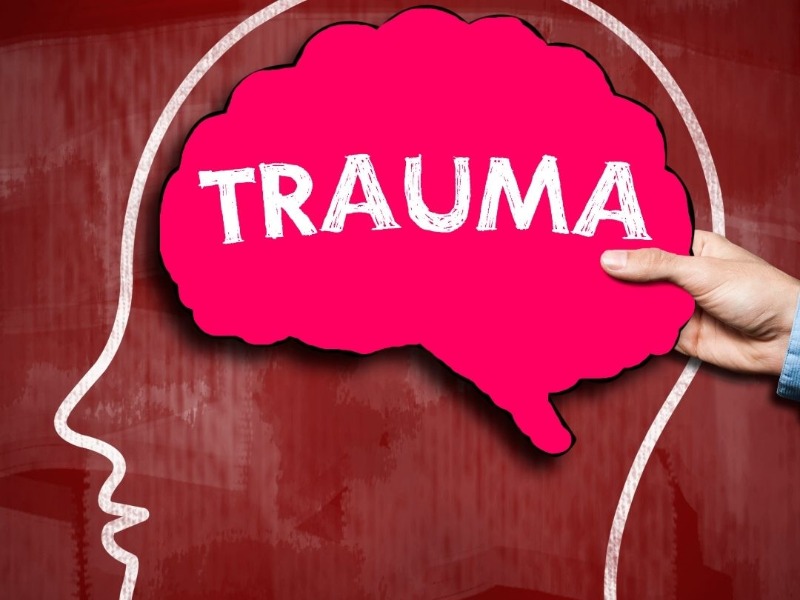Understanding Developmental Trauma

by Gwyneth Hodgins
Registered Social Worker & Psychotherapist
What is Developmental Trauma?
Trauma is often misunderstood in our society. Most of us have heard of PTSD (Post Traumatic Stress Disorder). We may think of veterans or survivors of natural disasters. However, trauma can be much more complex than experiencing one or many stressful events.
Many people are affected by something called Developmental Trauma. This kind of trauma can affect people even if the traumatic experience happened before they could remember.
When we are babies or in the womb, our brains are developing at an astronomical rate. We are looking to our experiences to create the blueprint for how we see the world: is it safe or dangerous? Are people mostly good or bad? If I cry, will someone come to meet my needs? Our amazing brains adapt to survive in the environment they’re growing in.
How Developmental Trauma Works – Two Examples
If I experience a father who gets really angry and scary, it is adaptive for me to become hyper-vigilant to signs of anger around me. I may end up being an adult who experiences anxiety that I don’t understand.
If I have a mother who is depressed and inconsistently attuned to me, it is adaptive for me to learn that I may not be able to trust others to meet my needs. I may find myself in a string of dissatisfying relationships where I don’t allow myself to be vulnerable, or I get vulnerable too quickly and fear rejection.
The Adaptive Brain
The good news is, our brains continue to grow and adapt throughout our lives. We are constantly creating and changing neuro pathways in the brain. This means that we always have a chance to learn a new way of seeing the world. It just takes longer, since changes happen more slowly as adults.
Trauma Therapy
If trauma plays a role in your life, I generally don’t start by jumping straight into conversations about it. First, I take the time to get to know you and build safety. We may spend time learning how to regulate yourself, how to dip your toe in the waters of that traumatic pain, and then withdraw it when it gets to be too much.
One of the things we know about trauma is that it results from situations where we felt powerless or a loss of control. To heal trauma, having the power to share only in situations where you feel safe is vital.
The Healing Effects of Rhythmic Movement
Another thing we know from research is that rhythmic movement is extremely regulating for our brains. Think of the drumming, dancing, and chanting that exist in traditional societies. Humans have practiced this for as long as there have been humans, and there’s now research to support this. Therefore, participating in some form of rhythmic movement (dance, running, walking, singing, etc.) may be an important part of your treatment plan.
Validating Your Emotions
We will also focus on developing emotional awareness and expression. One of the most common things I see is people who were never taught that their emotions are valid and important. Therefore, they may feel are scared or overwhelmed by them. Think of how many of us have an extra glass of wine at the end of the day to “take the edge off”. Or maybe we avoid bringing up a conflict with our partners and instead say something passive aggressive.
What we’re really doing is avoiding the painful emotion, because we haven’t learned that that emotion carries an important message, and that we are strong enough to tolerate it. If we can build this tolerance, we don’t have to avoid the painful emotion that arises as a result of trauma. This can become a little less scary.
I Can Help
References:
Perry, B. D., & Winfrey, O. (2021). What happened to you?: Conversations on trauma, resilience and healing. BLUEBIRD.
Van der Kolk Bessel, A. (2015). The body keeps the score: Brain, mind and body in the healing of trauma. Penguin Books.

Over my 7 years of experience, I’ve worked with individuals across the lifespan, from young children to senior adults. Currently, I specialize in working individually with teens and young adults, though I also work with individual adults, parents, and families as needed. My approach is a mix of several therapeutic modalities, including Cognitive Behavioural Therapy (CBT), Emotion-Focused (Family) Therapy (EFT; EFFT), Mindfulness-Based, Attachment-Based, and Trauma-Informed therapy. I also strive to provide an anti-racist, anti-oppressive practice. I believe that our thoughts, feelings, and behaviours are, in large part, a product of our experiences. Feel free to book a 15-min phone consult to learn more about my services and how I can help you.
